9 Truths About a Strong-Willed Toddler
All toddlers have melt downs…but it’s a whole new ball game with a strong-willed toddler. Here is my experience from parenting a strong-willed toddler, and how we’ve learned to parent this incredibly sweet – but determined – little boy. This is a sponsored conversation written by me on behalf of P&G. The opinions and text are all mine.
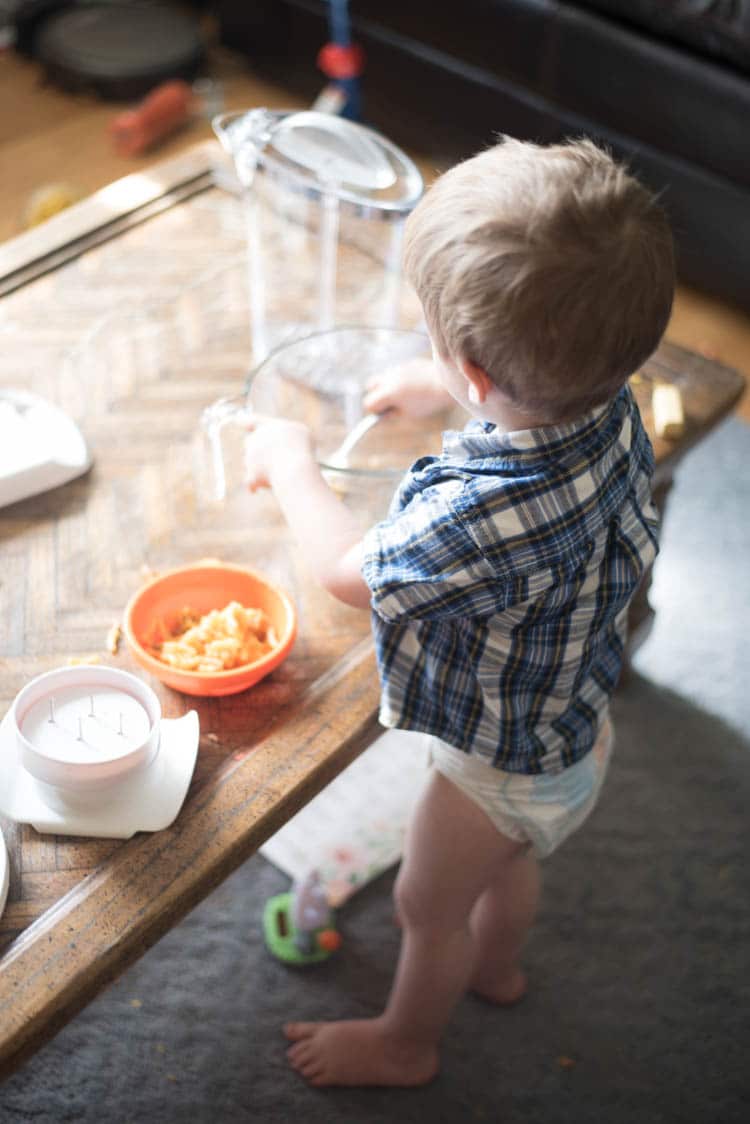
Oliver was breech at 37 weeks.
When we went in to the hospital to have an ECV procedure done, the doctors were super confident it would work.
“He’s so small – this will be simple!”
“There’s a lot of fluid – so helpful!”
“You are young and have successfully delivered a baby in the past – piece of cake.”
Fast forward an hour of trying later, and the doctor said,
“That is one stubborn baby.”
Despite their best efforts, Oliver kept flipping back to where he wanted to be. The doctor even commented that he was fighting her as best he could.
He flipped on his own a week later.
I should have known at that moment what a strong-willed child I would have.
As sweet as my little Oliver is, the older he has gotten, the more his strong-willed personality has started to show – especially as he’s become more mobile and independent.
All toddlers go through defiant stages and throw tantrums…but having parented two toddlers and worked with countless others over the years, there is definitely a difference between “typical” toddler behavior and strong-willed toddler behavior.
So if you find your life has many moments like this:

This post is for you. You’ve been blessed with a strong-willed toddler – and this is what I’ve learned:
Strong-Willed Toddler Characteristics
Strong-willed toddlers become strong willed adults – it’s important for them to have a loving and reasonable authority figure to help guide them to become successful strong willed adults. They have unique strengths that just need to be channeled to the correct place…and that begins with toddlers.
I truly believe that in this world, we need more people who aren’t easily swayed by others – your strong-willed child – as difficult as they can be at times – is a blessing.
They Know What They Want
If there’s one thing I’ve learned, it’s that strong-willed toddlers know exactly what they want – and they will go to whatever lengths they have to get what they want.
At the same time, they will also not often be persuaded to do something else when their mind is set on it.
As frustrating as this can be, I think it’s one of the greatest qualities that will take them through life…so I think it’s important to allow them to express these feelings (within reason).
The other day, Oliver really wanted a cupcake. We told him no.
Bound and determined, he pushed over a box of tissues and found a way to get to it.
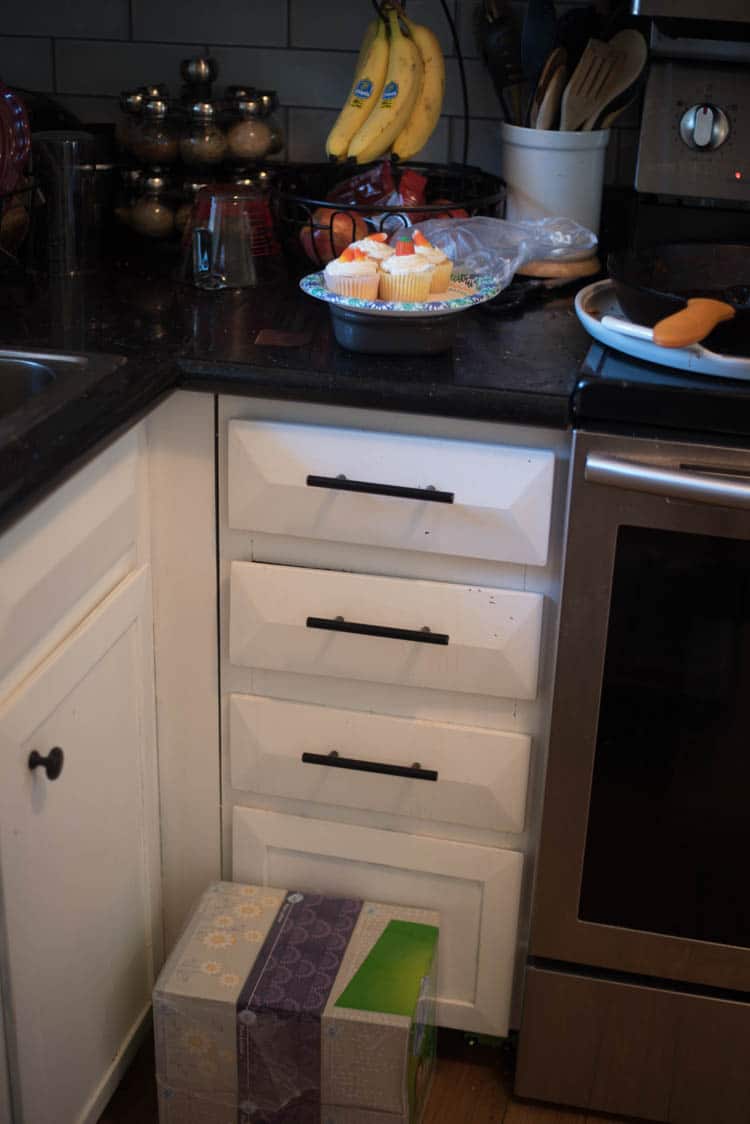
Of course, I didn’t let him have it still, and he was mad. But I was impressed with his ability to get to where he wanted to be. And once again, even after we moved the cupcakes, he found a way. Here is the series of events of me catching him:
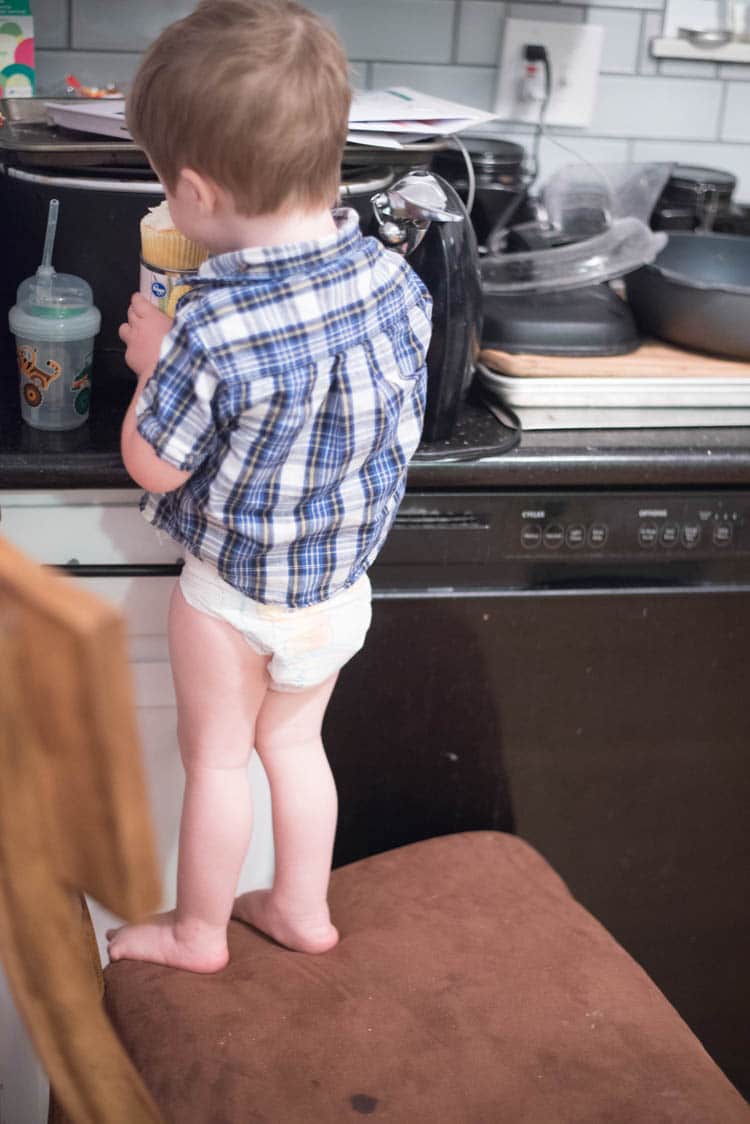
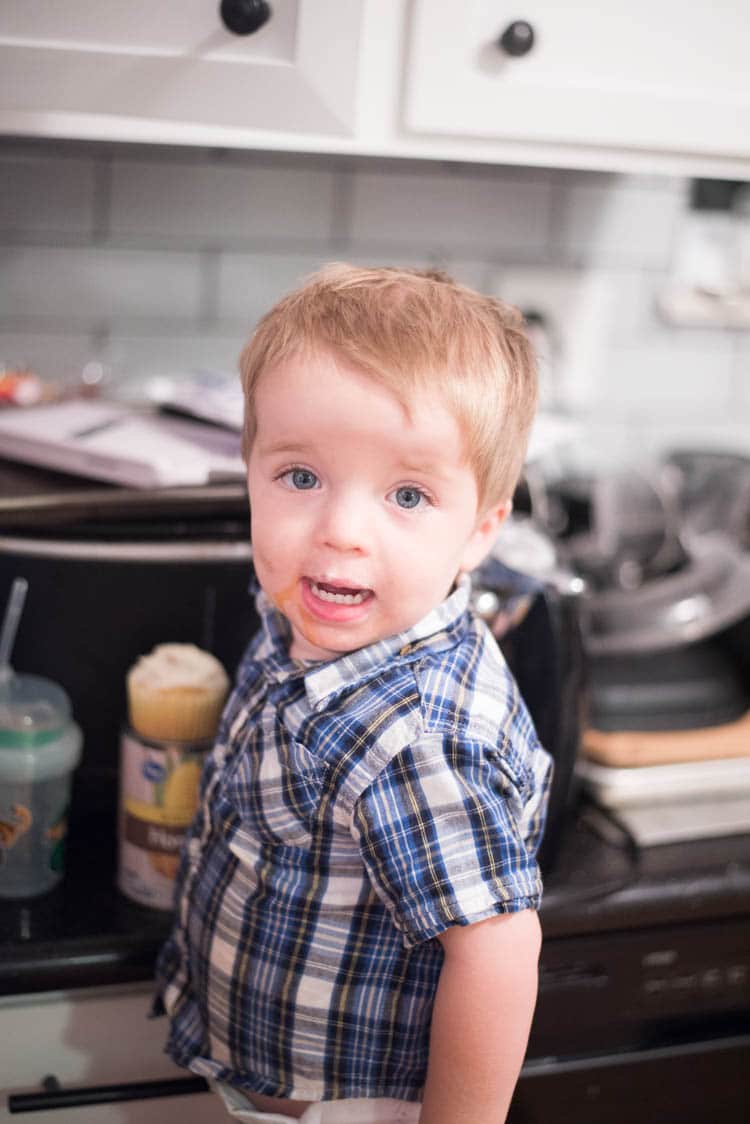
Afterward, we talked about it, and I told him after dinner he could have the cupcake, to which he calmed down and agreed.
I think it’s important to not dismiss their desires either, even when they don’t make sense.
Like when Oliver told me he needed a new diaper in the middle of church (even though it wasn’t wet at all). I told him to wait until our meeting was over, but he was convinced he needed a new diaper…so he took off his pants and diaper right then and there.
Who knows – maybe it was on too tight, and there was just something that didn’t feel right to him.
Toddlers typically have limited communication skills, so it can make being strong-willed even more difficult when they can’t express what they are feeling or needing. So try and trust what they are trying to do, even if it doesn’t make sense to you.
They Want to be Independent
Oliver always wants to do things himself. If he knows what it is he wants, he will do everything he can to do just that.
As a parent, I’ve had to learn how to find a way to allow him to do what he wants within reason. Obviously, if he wants to drive the car (which he does), he can’t. However, if he wants to pick out the diaper he’s wearing and the outfit for the day…that’s okay!
It can be hard at times, because he often wants to do things that he really isn’t developmentally ready to do. But if there is a way I can allow him to do something, I do. It avoids a lot of meltdowns, and I think that it helps him develop confidence in his own abilities.
I always want to baby my Oliver, because, well, he’s my baby! However, I’ve had to adjust that thought process a little bit, because he truly wants to be independent, and it’s something I need to try and encourage. Because in the end, independent is what we want our kids to be!
It’s important for them to know you are the authority – be consistent and follow through with rules. But be willing to allow them the independence they desire.
They Thrive on Routine
Realizing how important routine is to Oliver has been one of my breakthroughs in parenting him.
Not only is a day-to-day routine important – but just having him be aware of a schedule or timeline of events has prevented (or stopped) many tantrums in their tracks.
I’ve discovered how important is to follow through with our plans and what we tell him. I mean, if I tell him he can have a cupcake after dinner, he will usually be okay. But he will always remember, and it’s important for us to follow-through.
Another example is if you are going to a splash park. Don’t just talk about the splash park if you are going to eat lunch first. Tell them that you are going to eat lunch first and then play at the splash park.
Because otherwise, right when you get there, if they see the splash park, they will think that’s what you are doing right away…and a meltdown may ensue when you eat lunch first (because they didn’t know that was part of the plan!) Obviously plans can change, but treat your child like a real person – let them know when plans change. Toddlers understand far more than you may realize.
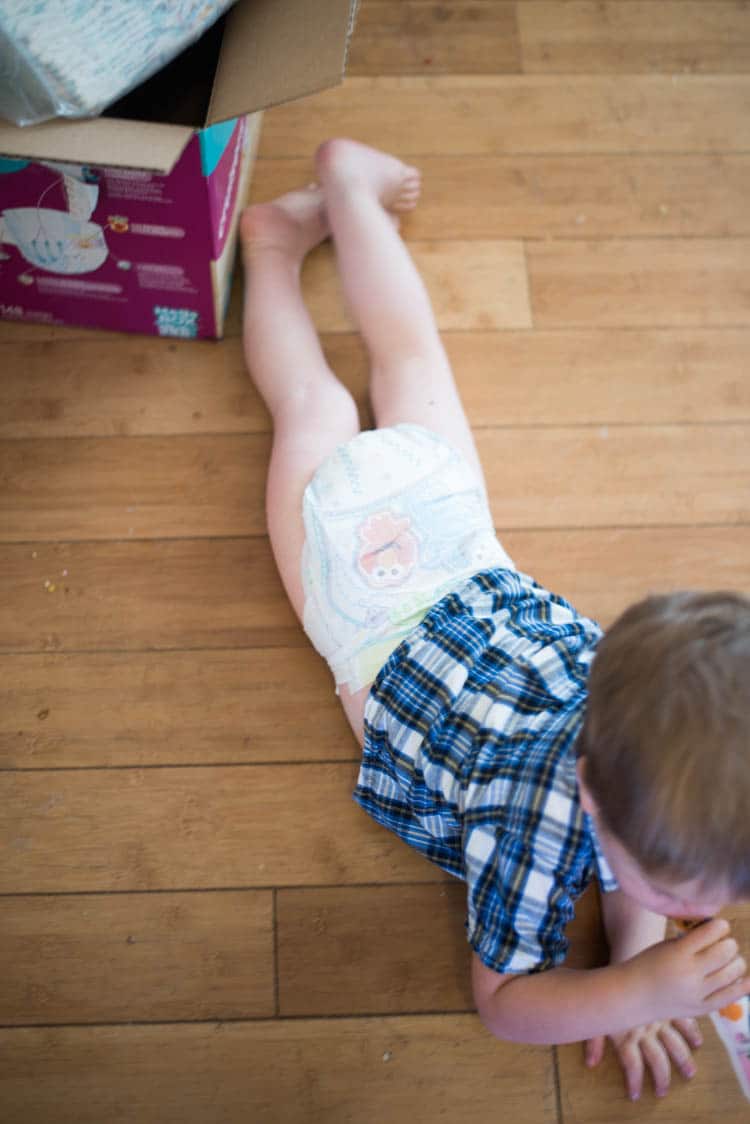
Choices are Essential
This is something that I’ve done to save my sanity. I learned early on that Oliver always wants to have an opinion on what happens.
And typically, he chooses the option that doesn’t really make sense. But that’s okay.
For awhile, we dealt with meltdowns at breakfast time. I never chose the right bowl, the right cereal, and I never poured the milk at the right time.
As simple as it seems, I finally just decided to ask Oliver for his opinions from the beginning. I started asking him which bowl he wanted, which order I put the cereal in his bowl (because he has to have all three options), and it made breakfast time a lot less stressful.
Obviously, I don’t let him have everything he wants. But I have learned that when I can give him a choice, I do. I think it helps him feel a little more in control of his life – and as a toddler with limited communication skills, that’s not always possible.
Phrase requests as a question or with choices. I’ve actually found that ending my sentences with “okay?” has helped. I know he understands what I’m saying when he actually says “okay” back.
Example:
- Instead of: “Oliver, stop throwing that food on the ground.”
- Say: “Oliver, you can put your food in your mouth or in the sink – but not on the ground. Okay?”
You Have to Pick Your Battles
I think if you can say yes, you should.
I mean, don’t get me wrong. You shouldn’t spoil your toddler and let them rule the roost.
However, when it’s reasonable to say yes – do it!
Pick the battles that are important to you. Teach your child, gently, that their way is not always the right way. But also remember that sometimes their way might be the right way – even if it’s not how you would do it. That’s something I’m always having to remind myself with Oliver.
You have to decide which rules are non-negotiable and communicate that to them. Not only that, but you have to be strong enough to push through the kicking and screaming when they don’t want to follow those rules. It will make it easier the next time.
Strong-willed toddlers need to know who is in charge – but they also need to feel that they have a choice in the matter and you aren’t just barking orders at them.
They Will Constantly Test your Patience
Oliver is constantly testing limits.
He climbs on things when we say no. I wish I could just describe the look he gives me when he knows he’s not supposed to be doing something – but he wants to try it anyways.
You may feel totally out of control of the situation – but it’s important to try and keep your cool as you deal with the behavior.
I find that if I start to get frustrated, if I just leave the room for awhile, it helps me collect my thoughts and figure out a way to help him better. It seems like it helps him too, especially if he’s freaking out already.
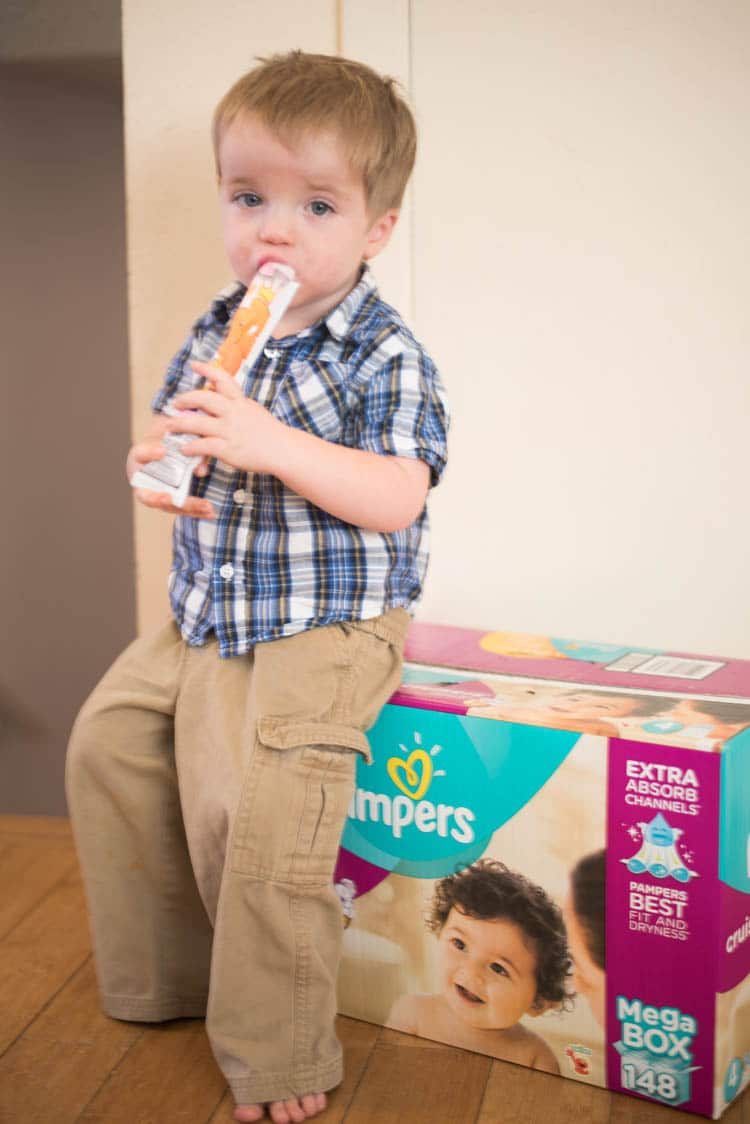
Interrupting a Tantrum Can Make it Worse
There will be times when you do everything right, and your strong-willed child will still be upset.
This can be frustrating as your child throws a huge tantrum on the floor in the grocery store, or as they cry for an hour at bedtime, keeping your other children from going to sleep.
I read an article awhile back about allowing your child to go through their tunnel of emotions – and not really trying to make things better until they do. I’ve used this approach with Oliver, and I feel that it has really helped me a lot with him.
I find that interrupting a tantrum can often make it worse. I’m sure there are people who have walked by me at the store as Oliver throws a tantrum and just wonder why I’m not doing anything…but in reality, I’m letting him go through his emotions. Once he’s back to reality, I talk to him about what happened (in as simple of terms as possible), but I do wait until he’s made it through his initial anger or frustration.
I’ve always been against making my children “cry it out” (mainly in regards to sleep), but in the case of a strong-willed child, that is the only thing that helps when they are having a tantrum as they work through their frustrations.
Non-Verbal Clues
With toddlers, they often don’t have the words to describe what they want.
It’s important to look for their non-verbal clues. For us, Oliver is pretty good at pointing what he wants.
When something seems to be wrong, I try to take a step back and see what’s going on – does he look hurt? Did something in the situation change suddenly? Is he pointing at something? Sometimes I will put his face in my hands and say, “Oliver, can you show me what you want?”, and he will.
Not all Discipline Works
As I’ve written this post, I’ve worried that people think I’m encouraging you to let your child do whatever they want; whenever they want.
I want to emphasize that this is not my intent, nor is it how we parent Oliver. I believe in allowing him freedom to do what he wants and to say yes – so long as it’s reasonable.
Strong-willed children do need to know who is the authority, and I think they thrive on that. You also have to come up with appropriate discipline, and I think that the most effective kind of strong-willed toddlers (and children in general) is with natural or logical consequences and rules.
Yelling rarely works. I try not to yell, but I’m not perfect. Jack always feels terrible when I lose my patience. But Oliver? He just keeps doing what he wants (and let me tell you, that does not make me feel better!).
The other day at the store, he sat down for some reason, and he didn’t want to move.
I told him, “Okay, I’m going to go bye bye!”, and I walked around the corner.
You know what he did? He just waved. With Jack, he would have come running.
Not Oliver. He had decided he didn’t want to move, so he wasn’t going to move, even if I left him behind (which, of course, I wouldn’t actually do).
I think that with most children, natural consequences are the best. However, I think it’s even more valuable with strong-willed children, because they can directly see what happens when they disobey. It’s something you can do calmly and without yelling, because, as the name implies…the consequences come naturally.
It makes sense to them, and it helps them learn for next time what happens when they disobey.
For instance, a few months ago, Forrest and the boys went out to breakfast while I was at a conference.
Oliver only wanted to eat the waffle on the plate. Forrest told him that he had to have some of the other food as well, or he couldn’t eat anymore waffle.
Oliver was pretty upset, and he knew he could have more waffle if he just ate some of the egg…but he refused to. And in the end, he didn’t get what he wanted.
And I believe that it helped the next time around. Sometimes you may have to make sacrifices when following through, but it will help in the long run.
Positive Reinforcement
Sometimes I think Oliver keeps doing something naughty because he gets a reaction. It kind of drives me crazy and makes me feel even more frustrated, but I’ve tried to learn to ignore or redirect the bad or inappropriate behavior.
At the same time, I’ve learned to be really encouraging when he does something good or follows instructions. He gets the reaction he’s looking for, and he’s more likely to do that in the future.
Parenting a strong-willed toddler isn’t for the weak of heart.
There will be times where you are equal parts frustrated and in awe of your child. Embrace them and their unique personality. They really are amazing human beings – and I love Oliver more than life itself.
Even if he might make me go gray earlier than I anticipated 🙂
Don’t compare them to your other kids and don’t try to change them.
I’d be lying if I said it was easy. There are some days I want to pull my hair out or perhaps hide in the closet and eat some chocolate.
However, it’s been a growing experience for me as I’ve learned to parent a strong-willed toddler. Oliver truly is such a sweet child, and I’m so grateful to be his mother. It’s just taken a bit of time for me to learn how to parent him (and I assure you, I’m still learning).
When you have a strong-willed toddler, you know the importance of streamlining life as much as possible – for everything from meal time, bedtime, and of course, diaper time.
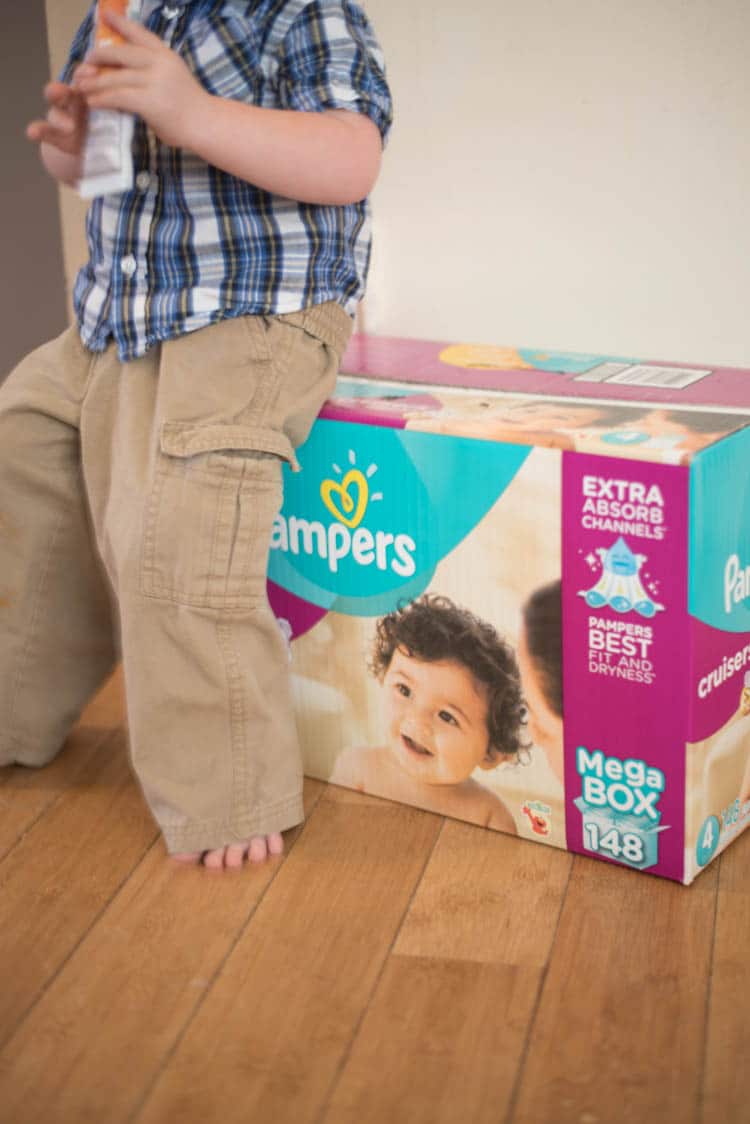







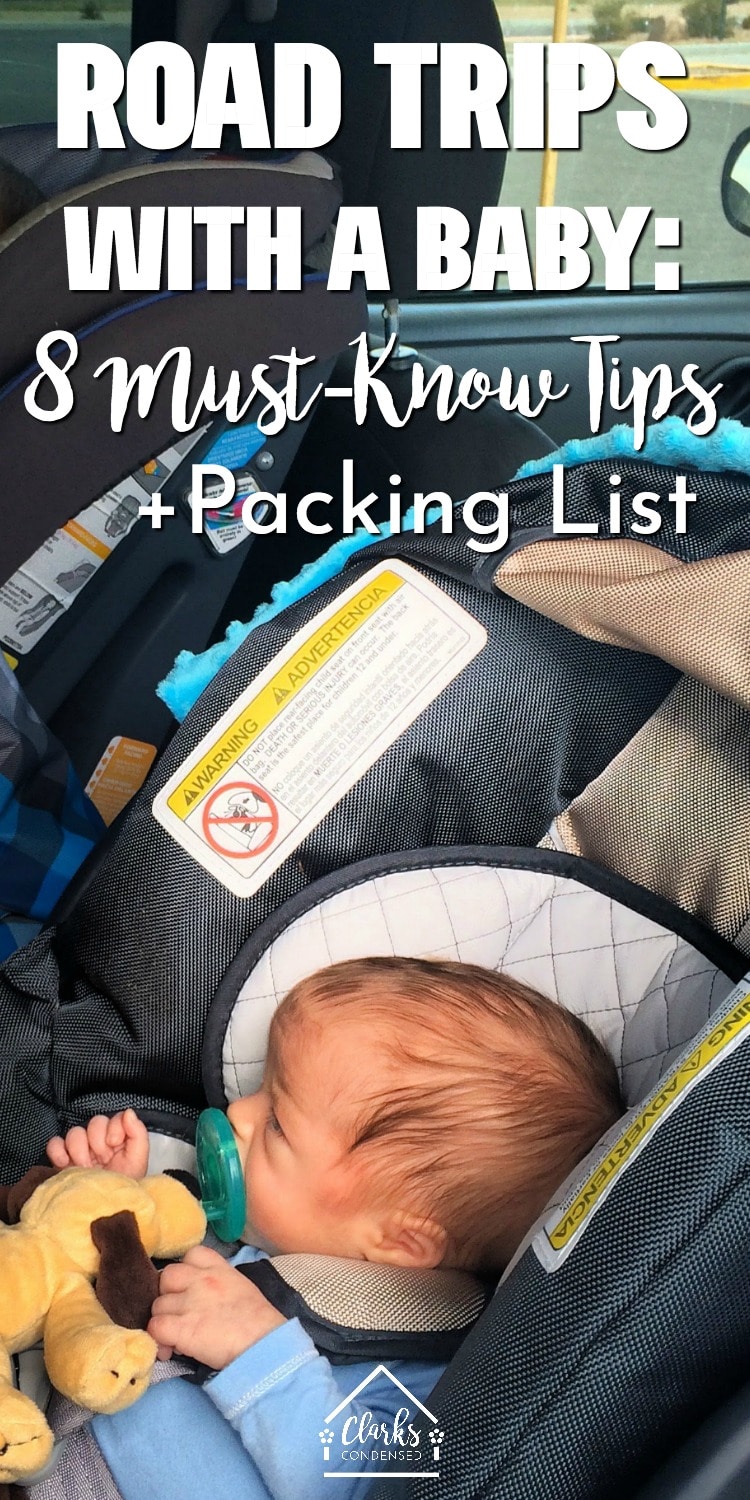
Wait, so not all toddlers act like this? Seriously, sometimes I don’t where the line is between “normal” toddler behavior and my child being his own brand of stubborn… reading this I just kept saying “oh my gosh, this is B!” I have tried some of what you recommend here and that encourages me that I’m thinking along the right lines.
I hope that you’ve had some luck, and I’m glad this post was helpful!
Oh my gosh, I sure needed this right now. I agree with everything you wrote and will save this post to re-read it when I need the reminders! Thank you for being brave and sharing this!
I’m so glad that you found this helpful <3 Good luck with your spirited little one. It's a journey - but it's 100% worth it.
This sounds just like my youngest granddaughter. I am saving a few of your articles and will share them with my daughter-in-law. I am also learning as I watch her sometimes. Thank you so much for your insight. I found this article by looking at your weighted blanket directions. I will follow you to see what other help you provide for our little tornado 😀😀
Thank you Angie! I hope that they will be helpful for you both 🙂
These characteristics are so true and actually describe a strong-willed toddler. I’ve a friend whose daughter shows all of these traits and she is actually strong-willed, confident, and little bit stubborn.
Good luck when he’s 17. The end.
Thanks for the encouragement 😉
Hi Katie,
thank you so much for this article. You are so right. It is not easy parenting a strong-willed toddler. My son was behaving exactly like you describe in this article. Now I think we are growing as parents if we have such a strong-willed child. Thanks again for sharing your experience with us.
Thanks for commenting 🙂 Us strong-willed child parents have to stick together!
YUP! My second is very strong-willed. It’s hard, but I’m hoping it will pay off one day haha.